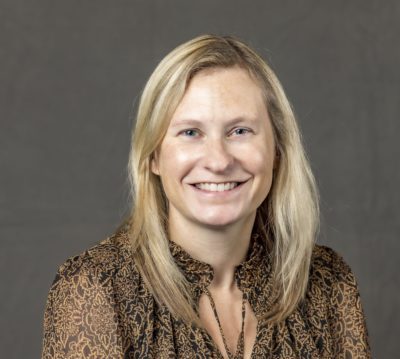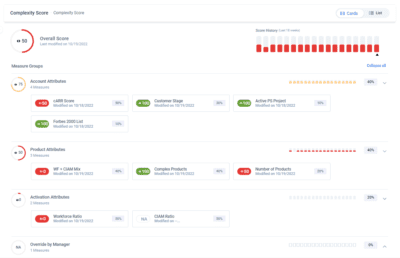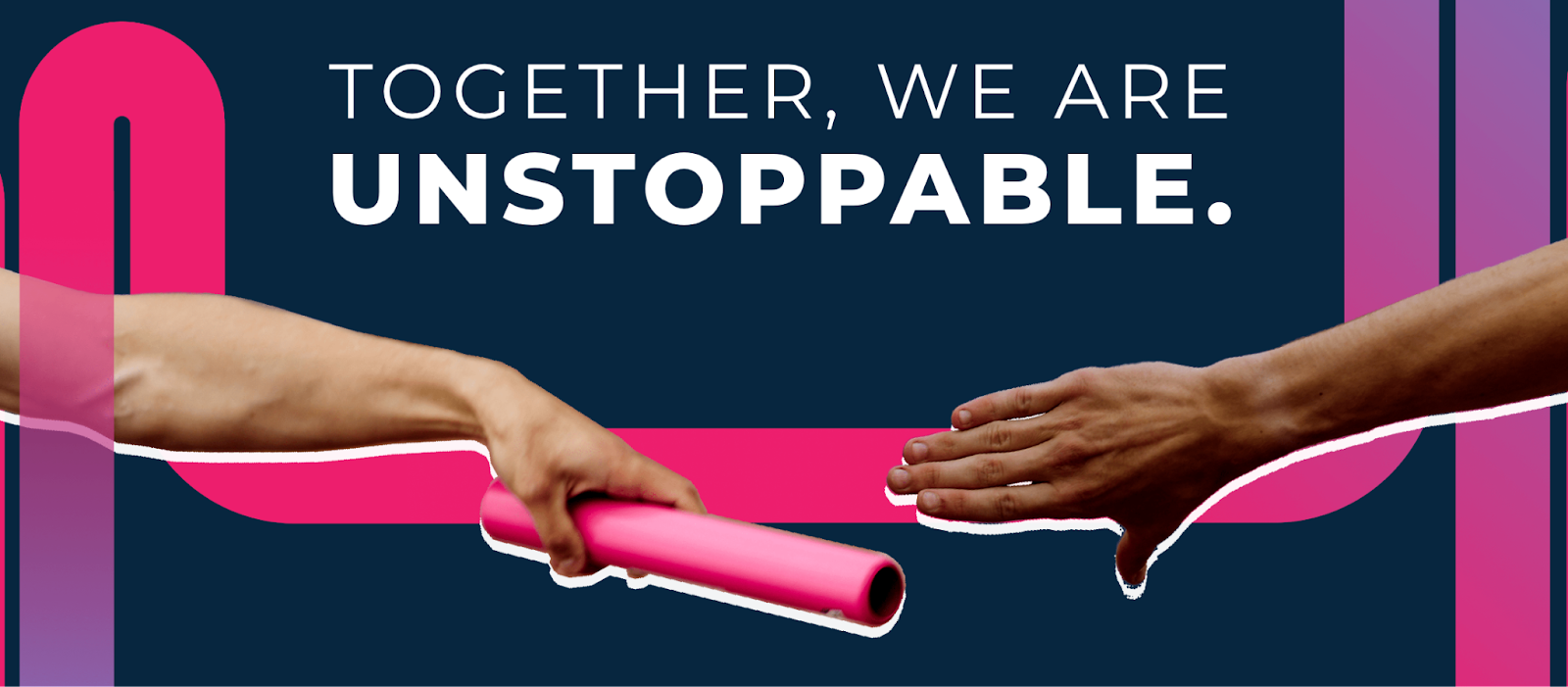Okta’s 2022 GameChanger Award win showcases how CS Ops and Gainsight can take on just about any challenge.
Their entry detailed how they used the Gainsight CS platform to create automated Complexity Scores for accounts and a Compensation Dashboard, which helped managers assign work to CSMs in a sustainable cadence—even during a period of rapid growth. According to Okta, this solution “is leading not only to a more balanced workload but to a higher sentiment across the CSMs as they feel they are more accurately balanced in their account portfolio.”
Customer spotlight Q&A: Melissa Allen

Melissa Allen, Sr. Manager of Customer Success Strategy & Operations at Okta
To help get a better understanding of the people and process behind their big win, Gainsight caught up with Melissa Allen, Sr. Manager of Customer Success Strategy & Operations at Okta, for her insight.
Q: You won the 2022 GameChanger Challenger Award. Congratulations! So, how do you celebrate an achievement like that?
Melissa Allen: First, I told my team, and everybody was super excited. It reinforces the effort my team and I put in to feel like innovators, to feel like we’re leading. All the deep dives into complex problems, creating innovative solutions that are seen by other people in the same industry, that feels really great.
So that’s kind of how we celebrated—we went to dinner while we were at Pulse and were proud of ourselves for doing something that not only was helpful to CS at Okta, but caught Gainsight’s eye and was innovative in the industry.
Q: You mention having your work seen as being part of the reason to celebrate. Do you think that those in CS Ops often tend to go unseen?
Allen: Operations in general is typically behind the scenes. But it’s the kind of group that is the backbone of everything Customer Success. At Pulse, I heard someone say CS OPs is CS for CS, and I totally agree with that.
I think initially CS Ops was used as more of an on-demand type of technical support. But CS Ops has evolved to be more of a strategic partner.
Q: As someone who has a proven (and now very public) track record of success in a CS Ops role, what would you say to aspiring or new CS Ops professionals who may feel overwhelmed or maybe even suffer from imposter syndrome?
Allen: Take it one step at a time. Project by project and over time as you grow you will feel more comfortable. You will always have an impact. Everything you do in CS Ops has an impact on the business, big or small. Ultimately you will see all of your efforts contribute to the larger solution for CS.
Q: Your Gainsight GameChanger award-winning solution sounds like a win-win-win for CS leaders, CSMs, and customers who benefit from well-balanced account coverage. You identify six account complexity score factors that feed into your dashboards. One score factor is a CSM override: for “an additional level of complexity that the CSM knows based on experience with the customer.” How important is it to have this type of human versus automation input balance?
Allen: I think it’s hugely important. In most businesses, you’re going to have a CSM coverage segment and a digital type of segment. With scale being so important, you want as much as you can to be automated. When it comes to the CSM coverage segment though, you want to be able to capitalize on that knowledge coming from your people. CSMs are talking to their customers all the time, they’re on the ground with them. They’ll have that extra insight that can’t come with automation. While you want to try and cover at least 80% of accounts with automation, know that there might be 20% that have specific circumstances that don’t fit the normal logic.
That said, you want to be able to address the 20% by allowing a CSM (who has that really personal connection) to be able to override the standard logic. Having a CSM override score factor also helps provide extra buy-in, where CSMs can say, “Okay the normal logic does take care of the majority of my accounts, but you are providing me an avenue to adjust the score to reflect my customers with a unique situation.” It’s important for CSMs to have some control over those unique exceptions or those certain circumstances with accounts.

Okta’s customer complexity scoring includes an option for manager override.
Q: Your GameChanger program also has an added benefit of helping to prevent CSM burnout. What did this mean to your organization as it grew rapidly during the “great resignation”?
Allen: Before, many CSMs wouldn’t know how to show if they were overwhelmed or exhausted from the complexity of their accounts. It was all rather subjective. There was no data to show if somebody was over utilized or if they were underutilized and they could handle more.
Being able to quantify and show how your CSMs are doing establishes transparency. There’s a new level of understanding without relying on just qualitative metrics. Utilizing this scoring, you no longer have to prove what the data shows. It’s also transparent across the CS teams so that hopefully everyone feels like the process is equitable.
This program enabled us to have a different conversation about how we want to assign new accounts, and how we want to change workload balance.
Q: This type of program affects a lot of stakeholders. How do you introduce and then roll out something as big as this?
Allen: We didn’t want to go through the whole effort of building it out just for people to say we don’t need this. So when we do projects like this, we start with an idea and we mock it up. And we ask, “Does this help move the business forward? Does this help with scale?”
For the GameChanger project, we put data into Excel at first. We were able to see that looking at accounts in this manner was not only helpful, but helped us in viewing how “utilized” a CSM was regardless of how many accounts they had under them. We wanted to view that utilization differently than just account to CSM ratios. We also brought in CSMs to look at each individual customer complexity score to see that it made sense—a gut check of sorts after all the analysis we had completed. Once we confirmed that this was an effective way to view accounts and CSM coverage, we moved to automate it to make it more scalable.
We knew we wanted to build this in a way that was automated, scalable and would be easy to onboard users. Gainsight had an existing tool, the relationship score, that I utilized to build our new complexity score. We could use Rules Engine to automate the fluctuations and changes in data, and use the scorecard functionality to auto manage the weights with the new data inputs on a regular basis without any manual intervention. We also had the added benefit of CSMs and CS Leaders already being familiar with Gainsight, so we didn’t have to enable them on a new tool.
After the complexity score was built, the next step was to make it visible for users. We built a Gainsight dashboard that allows managers to see the data at a high level but also filter down to either a single account, or a single CSM. The CSMs have access as well and this allows the teams to be in sync with what is being shown as the state of the business.
Q: Are you already thinking about your next GameChanger Award submissions?
Allen: Yes! You leave Pulse in this energized state of thinking that everything is possible. With all the innovative features Gainsight is coming out with, you can’t help but think how can we implement those to make our CSMs’ lives easier, more efficient, and overall better? So I challenged my team to come up with a cool project. It gives them something fun to look forward to … something fun to create that also benefits Okta. Because creativity keeps the juices flowing, right?
Watch the GameChanger Awards
Got Pulse FOMO? You can watch the GameChanger Awards and more in the Pulse Library.
